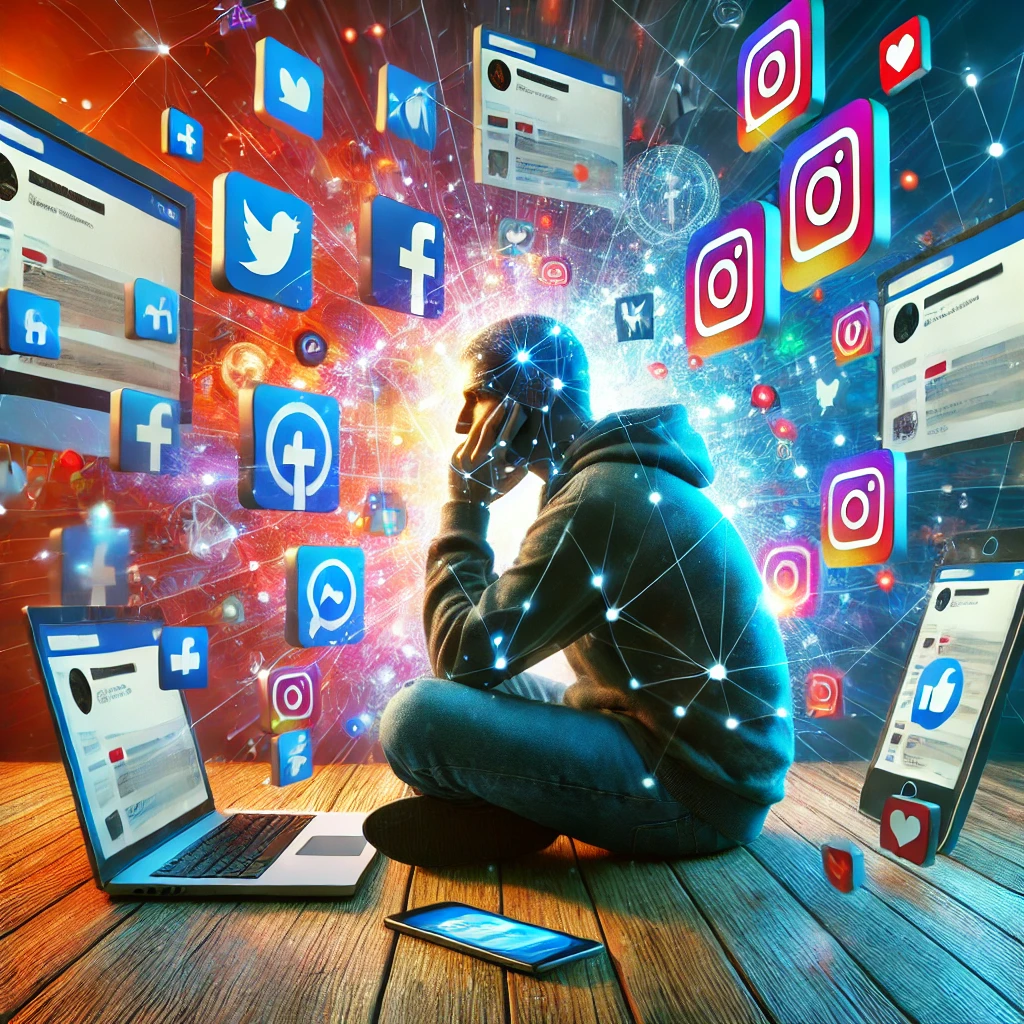In the past, when you wanted to meet someone, you often had to call them or find other means of communication. Then SMS entered our lives, followed by the rise of social media, which became an entirely new phenomenon. Previously, people had limited opportunities to express themselves, typically confined to their social circles, reaching perhaps 100-150 people at most. However, with the advent of social media, people suddenly found themselves with the ability to express themselves openly to a much wider audience.
Another significant change was in how we consumed content. In the past, our viewing habits were dictated by television schedules. We would wait eagerly for a specific time to watch our favorite show. Now, we live in an era where content is bombarded at us from all directions, creating an overwhelming environment. This shift can be compared to the evolution from relying on horses for transportation to adopting trains, then cars, and eventually airplanes. This transition was more gradual, but the rapid rise of social media and the creation of new platforms over the past 15-20 years have led to massive advancements in this area.
So, what impact does this rapid change have on our brains? How do we develop habits around these processes? If this change had taken place over 150 years instead of just 15, would the transition have been healthier? This is an intriguing question to consider.
Our minds, at their core, are still very similar to those of primitive humans. Evolutionary processes don’t happen within 100-150 years. Therefore, our reactions to these new environments are often instinctual, beyond our conscious control, and can sometimes lead to behaviors that are difficult to manage, particularly concerning dopamine receptors.
This brings us to the topic of digital mental health, a field you are currently working on. What does this field primarily study? Is it gaining traction worldwide, and is it beginning to make an impact in Turkey?
Digital mental health is a vast, interdisciplinary field. Everyone tries to tackle it from their area of expertise. Generally, it examines how psychological dynamics change in digital environments and the new phenomena that emerge as a result. For instance, studies may focus on the correlation between screen time and certain psychological disorders, the impact of late-night screen usage on sleep problems, and more complex issues like whether certain online behaviors can predict suicidal tendencies or substance abuse.
Unfortunately, most of the initial research in this area started with optimism about the benefits of the internet. People thought it would enhance social connections, allowing more frequent communication with close ones without the need to leave home. However, the focus has shifted as more serious mental health concerns have come to light.
One of the prominent issues today is screen addiction, particularly evident in children. When a child’s tablet is taken away, they may throw a tantrum, get angry, or argue with their parents. This problem is not confined to children; adults also experience screen addiction, often leading to anxiety attacks when they are away from their phones or computers.
At what point should we consider this a serious psychological problem? What exactly is screen addiction?
Screen addiction is a complex issue. The American Pediatric Association recommends a daily screen time limit, but how many people actually adhere to it? Most people exceed this limit due to work, leading to additional screen time for social media and other activities. Over time, this behavioral aspect becomes intertwined with the physiological effects, creating a harmful cycle.
An important point to note is that the elimination of “boredom,” the periods where people used to simply sit and think, has disappeared with screens constantly providing stimulation. This constant stimulation prevents people from being alone with their thoughts, which can have detrimental effects on mental health.
When people are stressed, they often turn to coping behaviors, sometimes even adopting behaviors with short-term rewards that temporarily alleviate stress. However, this can lead to dependencies that are difficult to break.
The irony of screen time is that while it offers quick and easy entertainment, it also contributes to mental health issues like anxiety and depression. The constant comparison with others on social media exacerbates feelings of inadequacy, leading to a sense of missing out or not being good enough.
This brings us to the concept of FOMO (Fear of Missing Out), where the constant bombardment of other people’s seemingly perfect lives can make individuals feel inadequate or left behind. This is particularly concerning during adolescence, a period of significant psychological and emotional development.
In adolescents, especially girls, social media can significantly impact self-image and lead to issues like eating disorders. The constant comparison with others during a critical developmental phase can have lasting negative effects.
In summary, while social media has brought about many positive changes, it has also introduced new challenges for mental health. It’s crucial to understand these impacts and find ways to mitigate the negative effects, especially for vulnerable populations like adolescents.

